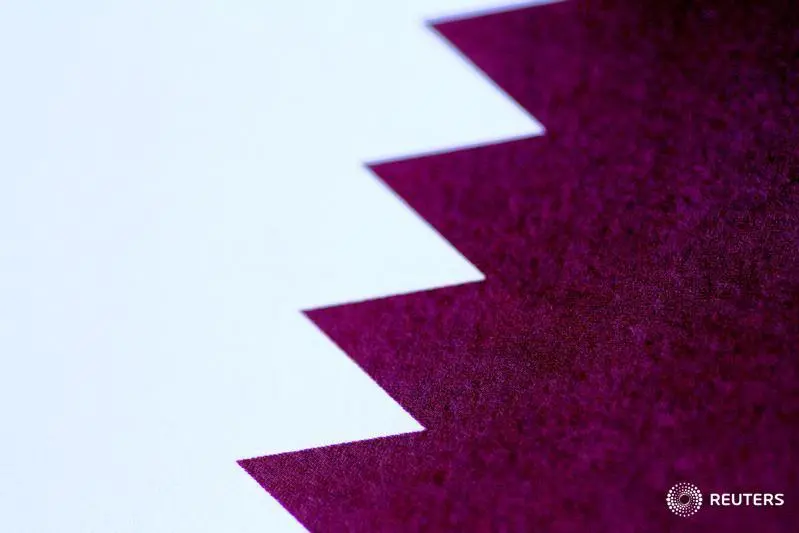PHOTO
The United Arab Emirates will make short-term economic gains as a result of the ongoing boycott of Qatar by four of its neighbours, but the investment climate across the Gulf Cooperation Council will worsen if the dispute is dragged out, according to a new report.
The research note from BMI Research, a Fitch Group company, states that the boycott of Qatar by the UAE, Saudi Arabia, Bahrain and Egypt, will continue "for as long as it takes for a diplomatic solution to be found".
And although the UAE will benefit from an increase in tourism numbers, as well as potentially capturing financial institutions that might otherwise have headed to Doha, the potential long-term impact for the entire region is likely to be damaging to investor sentiment if it drags on.
"In the near term, we expect that the UAE will benefit from the ongoing crisis, not least as Saudi visitors who would normally have taken their holidays in Qatar are going to Dubai and Abu Dhabi instead," the report said.
"There is also scope for the UAE to benefit from financial institutions looking to establish themselves within a more certain GCC member than Qatar, potentially relocating from Doha.
"However, looking further ahead, we believe that the diplomatic spat will have a negative impact on foreign investor sentiment towards the GCC as a whole. As the most diversified economy within the bloc, it is the UAE which stands to lose most from this," it argued.
The GCC states generally have benefited from being seen as a politically stable base for the wider Middle East and North Africa region, and the UAE has been the country from which many multinationals have established their base.
"We still believe that the UAE will continue to attract considerable foreign interest," BMI Research said, and in a separate research note it argued that the country would remain as "a clear emerging market outperformer", offering the best potential risk-return rewards in five out of nine identified industries, including power, infrastructure, renewables, upstream oil and gas and the food and beverage industries.
Yet it said that the dispute has "highlighted differences between the GCC member states", and that investors are likely to be more cautious as a result.
Fitch Ratings last month cut Qatar’s sovereign rating by one notch to AA- and gave it a negative outlook because it said that it could not see significant progress being made in the stand-off between Qatar and the four nations that have embarked on the boycott. It said that Qatar’s government may have to rein in spending on infrastructure and economic projects if the damage being inflicted on its economy from the boycott intensifies.
The UAE, Saudi Arabia, Egypt and Bahrain closed land, sea and air borders with Qatar on June 5 in protest at Doha’s alleged links to terrorist groups, something which Qatar has denied.
Further reading:
© Zawya 2017
The research note from BMI Research, a Fitch Group company, states that the boycott of Qatar by the UAE, Saudi Arabia, Bahrain and Egypt, will continue "for as long as it takes for a diplomatic solution to be found".
And although the UAE will benefit from an increase in tourism numbers, as well as potentially capturing financial institutions that might otherwise have headed to Doha, the potential long-term impact for the entire region is likely to be damaging to investor sentiment if it drags on.
"In the near term, we expect that the UAE will benefit from the ongoing crisis, not least as Saudi visitors who would normally have taken their holidays in Qatar are going to Dubai and Abu Dhabi instead," the report said.
"There is also scope for the UAE to benefit from financial institutions looking to establish themselves within a more certain GCC member than Qatar, potentially relocating from Doha.
"However, looking further ahead, we believe that the diplomatic spat will have a negative impact on foreign investor sentiment towards the GCC as a whole. As the most diversified economy within the bloc, it is the UAE which stands to lose most from this," it argued.
The GCC states generally have benefited from being seen as a politically stable base for the wider Middle East and North Africa region, and the UAE has been the country from which many multinationals have established their base.
"We still believe that the UAE will continue to attract considerable foreign interest," BMI Research said, and in a separate research note it argued that the country would remain as "a clear emerging market outperformer", offering the best potential risk-return rewards in five out of nine identified industries, including power, infrastructure, renewables, upstream oil and gas and the food and beverage industries.
Yet it said that the dispute has "highlighted differences between the GCC member states", and that investors are likely to be more cautious as a result.
Fitch Ratings last month cut Qatar’s sovereign rating by one notch to AA- and gave it a negative outlook because it said that it could not see significant progress being made in the stand-off between Qatar and the four nations that have embarked on the boycott. It said that Qatar’s government may have to rein in spending on infrastructure and economic projects if the damage being inflicted on its economy from the boycott intensifies.
The UAE, Saudi Arabia, Egypt and Bahrain closed land, sea and air borders with Qatar on June 5 in protest at Doha’s alleged links to terrorist groups, something which Qatar has denied.
Further reading:
- ZAWYA’s Special Coverage on the Qatar tensions
- Qatar may cut capital spending because of sanctions - Fitch
- Optimism scarce as Qatar crisis enters fourth month
- After Fitch downgrade, Qatar c.bank chief says banking sector strong
© Zawya 2017





















